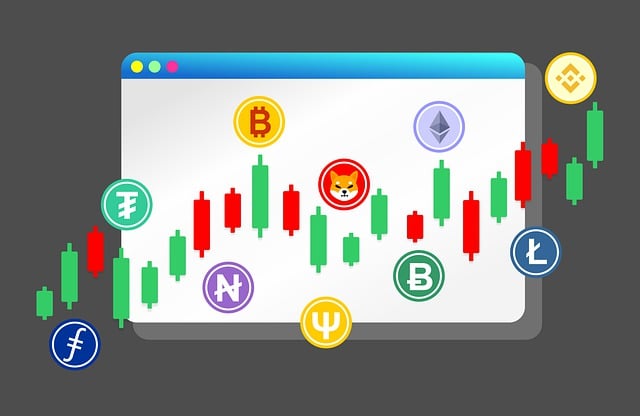The Rise and Responsibilities of Crypto Traders in 2024
In an ever-evolving financial landscape, cryptocurrency trading has emerged as a defining feature of modern investing. As we step into 2024, the cryptocurrency space is not only witnessing a surge in traders but also facing increased scrutiny from regulators, emerging technologies, and changing market dynamics. This article delves into the current state of crypto trading, the responsibilities of traders, and the future outlook of this vibrant ecosystem.

The Current Landscape of Crypto Trading
In the past few years, cryptocurrencies have transitioned from niche investments to mainstream financial instruments. The rise of Bitcoin, Ethereum, and an array of altcoins has sparked interest from both institutional and retail investors, resulting in increased trading volumes across various platforms.
Understanding Market Dynamics
The cryptocurrency market is known for its volatility, which can be daunting but also exhilarating for traders. As market dynamics shift, driven by factors such as regulatory news, technological advancements, and market sentiment, it is imperative for traders to stay informed and adapt their strategies accordingly.
Key Factors Influencing Crypto Prices
- Regulatory Developments: Loyal to the whims of government policies, crypto prices can fluctuate dramatically based on new regulations, tax implications, or approval of exchange-traded funds (ETFs).
- Technological Innovations: Upgrades to blockchain technologies, such as Ethereum’s transition to a proof-of-stake model, can lead to price surges or drops.
- Market Sentiment: News coverage, social media trends, and influencer statements can rapidly shift investor sentiment, impacting trading volumes and prices.
- Global Economic Factors: Inflation rates, interest rates, and political stability also play a crucial role in the crypto market’s performance.
The Expansion of Decentralized Finance (DeFi)
Decentralized Finance, or DeFi, has become a significant catalyst in the crypto trading landscape. By using blockchain technology to recreate traditional financial systems, platforms like Uniswap and Aave allow users to trade, lend, and borrow without intermediaries. This has transformed how crypto traders approach the market, enabling them to capitalize on yield farming and liquidity mining opportunities.
Centralized vs. Decentralized Exchange Trading
As the crypto trading ecosystem expands, traders are presented with two primary types of exchanges: centralized exchanges (CEX) and decentralized exchanges (DEX). Each has its advantages and drawbacks.
- Centralized Exchanges: Platforms like Binance and Coinbase offer user-friendly interfaces and high liquidity. However, they require traders to relinquish control of their funds, exposing them to the risk of hacks and regulatory scrutiny.
- Decentralized Exchanges: DEXs like PancakeSwap give users more control over their assets and operations. Nevertheless, they can be less intuitive and may lack the same liquidity as established CEXs.
The Responsibilities of Crypto Traders
As the popularity of cryptocurrency trading continues to grow, so does the responsibility that comes with it. Traders must adopt a disciplined approach and adhere to ethical trading practices to ensure a healthy market environment.
Educating Oneself
Understanding the complexities of cryptocurrencies and their underlying technologies is crucial for traders. This includes being aware of market trends, technological advancements, and regulatory developments. Continuous education allows traders to make informed decisions rather than relying on speculation.
Implementing Risk Management Strategies
Volatility can lead to significant gains, but it can also result in severe losses. Successful traders employ risk management strategies to safeguard their investments. This includes setting stop-loss orders, diversifying portfolios, and allocating only a portion of their capital to high-risk trades.
Avoiding FOMO and FUD
In the fast-paced world of crypto trading, fear of missing out (FOMO) and fear, uncertainty, and doubt (FUD) can influence trader behavior. It is essential for traders to remain level-headed and not let emotions dictate their strategies. **Maintaining a rational approach amidst market noise is key to avoiding impulsive decisions.**
Being Aware of Regulation
As governments worldwide establish clearer regulations for cryptocurrencies, traders must comply with these frameworks. Failure to do so can result in severe consequences, including fines and legal implications. **Adhering to regulations fosters a more stable trading environment and adds legitimacy to the crypto space.**
The Role of Technology in Crypto Trading
Technology is the backbone of cryptocurrency trading, driving innovation and enabling new trading practices. As we move further into 2024, several technological trends are shaping the crypto trading landscape.
Artificial Intelligence and Machine Learning
The integration of artificial intelligence (AI) and machine learning (ML) into cryptocurrency trading is revolutionizing how traders analyze market data. These technologies can identify patterns, predict price movements, and execute trades at optimal times, transforming trading strategies.
Algorithmic Trading
Algorithmic trading employs mathematical models and automated systems to execute trades based on predefined conditions. This method allows traders to capitalize on market opportunities without constant monitoring. **While algorithmic trading presents unique advantages, it also demands a deep understanding of market behavior and risks associated with automated systems.**
The Rise of Mobile Trading Platforms
With the proliferation of smartphones, mobile trading platforms have gained popularity. They enable traders to execute trades anywhere, anytime, fostering a culture of spontaneity in trading decisions. However, this can also lead to hasty decisions without thorough analysis. **Traders must strike a balance between convenience and making well-informed choices.**
Security Measures for Trading
Security remains a significant concern for crypto traders. With numerous hacks and scams reported over the years, traders must prioritize safeguarding their assets. This includes using hardware wallets, enabling two-factor authentication, and being vigilant against phishing attacks.

Future Outlook for Crypto Traders
As 2024 unfolds, the future of crypto trading is filled with potential and challenges. Traders must adapt to the evolving landscape and harness emerging technologies and trends to thrive.
Regulatory Landscape Changes
In the coming years, we can expect further developments in cryptocurrency regulations. Governments will likely implement stricter measures to prevent fraud and protect investors. This could lead to improved market stability, but traders must navigate the changing landscape carefully. **Staying compliant will be a critical factor for success in the crypto world.**
The Influence of Institutional Investors
The influx of institutional investors is reshaping the cryptocurrency trading environment. As hedge funds, pension funds, and large corporations enter the fray, market dynamics will shift. **Institutional investment could bring more legitimacy and stability to the sector, but it also means increased competition for retail traders.**
Global Adoption of Cryptocurrencies
The potential for global adoption of cryptocurrencies continues to grow. As more individuals and businesses embrace digital currencies for transactions, the demand and liquidity in the market are expected to rise. This will present both challenges and opportunities for traders. **Adapting to new trading conditions will be crucial for long-term success.**
Conclusion: Embracing the Future of Crypto Trading
The world of cryptocurrency trading is an exhilarating yet demanding arena. As we venture into 2024, traders must remain informed, disciplined, and adaptable to navigate the complexities of this dynamic market. With the right knowledge, strategies, and ethical considerations, crypto traders can harness the opportunities presented by this revolutionary financial landscape. **Ultimately, the future of crypto trading will depend not only on market conditions but on the integrity and responsibility of the traders themselves.**